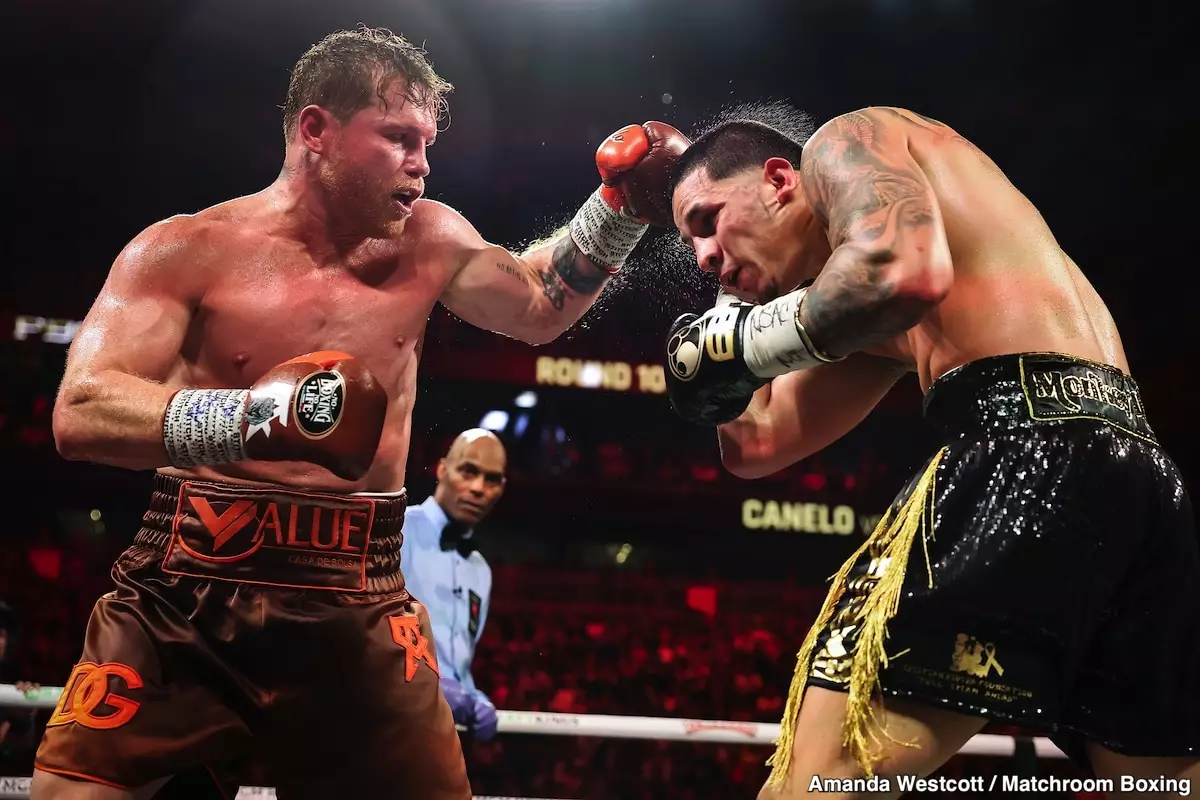In the realm of professional boxing, self-belief is pivotal for any contender. Edgar Berlanga, a welterweight with a record of 22 wins and only one loss, recently proclaimed himself one of Canelo Alvarez’s top three opponents. While confidence is essential in a fighter’s psyche, Berlanga’s assertion appears far-fetched, particularly considering the caliber of opponents Canelo has faced throughout his illustrious career.
Canelo Alvarez, boasting an impressive record of 62 wins, has gone toe-to-toe with some of the finest names in boxing. Notable opponents like Floyd Mayweather Jr., Dmitry Bivol, and Gennadiy Golovkin exemplify the elite level of competition Canelo has engaged with over nearly two decades. Berlanga’s claim juxtaposed against these world-class fighters raises significant questions about his understanding of what constitutes elite competition in boxing. While Berlanga’s punching power—illustrated by his 17 KOs—might make him a formidable opponent on paper, his performance against Canelo suggests otherwise.
Observing Berlanga’s most recent fight against Canelo, it was evident that he struggled to make an impact. His performance, wherein he mainly resorted to a defensive strategy behind jabs, lacked the aggression and strategic depth necessary to earn a place among Canelo’s elite foes. Instead of exhibiting qualities that challenge Canelo, Berlanga often appeared as if he was reacting to Canelo’s prowess rather than engaging in a meaningful contest. Such tactics, while sometimes effective, failed to leave a lasting impression, leading critics to question whether Berlanga is indeed equipped to challenge for a world title.
One of the intricacies of Berlanga’s performance was his substantial rehydration to 193 pounds after the weigh-in. This temporary increase in weight may have enabled him to absorb blows from Canelo more efficiently, yet it raises a significant consideration about his long-term viability in the super middleweight division. Weight management and the ability to sustain effective punching power while maintaining agility is crucial, and Berlanga’s struggle in this area questions his suitability for consistently competing at the highest level.
Berlanga’s reflections post-fight, indicating he displayed significant boxing IQ, seem misaligned with his actual performance. While self-analysis is vital for growth, recognizing one’s limitations is equally important in a sport where the stakes are continually rising. The true mark of a promising fighter is not just his raw power or self-belief but also the humility to acknowledge challenging encounters and the experience possessed by champions like Canelo.
As Edgar Berlanga navigates his career in boxing, a realistic assessment of his abilities in relation to the elite fighters he aims to emulate is essential. While confidence can propel a fighter to greater heights, it must be grounded in reality—something Berlanga may need to consider more thoroughly as he continues his journey. The boxing world awaits to see if he can evolve beyond his performance against Canelo and ultimately prove himself as a legitimate contender.

